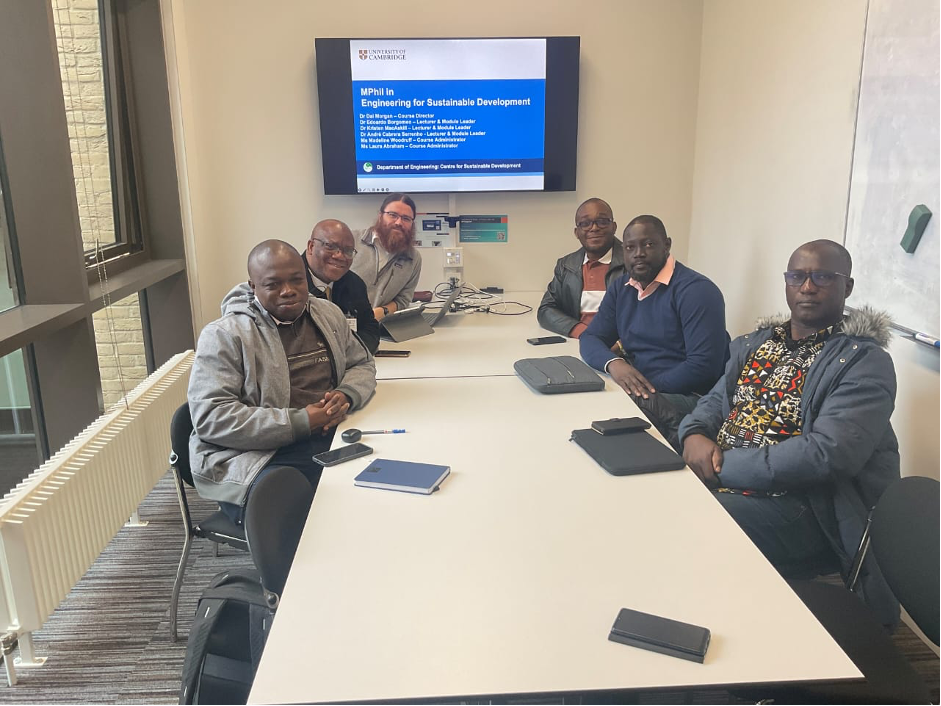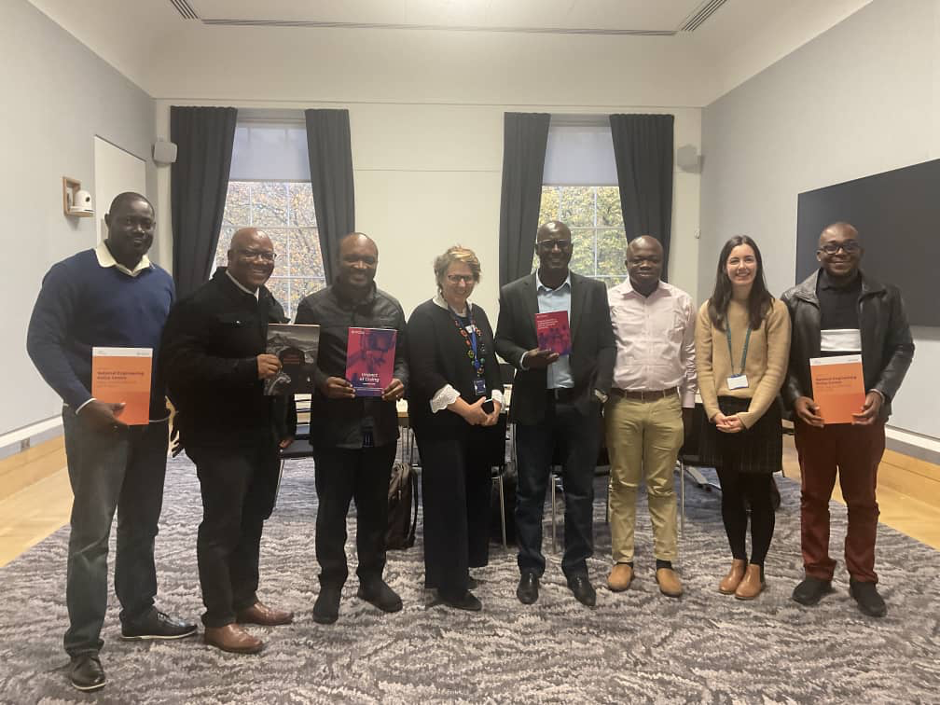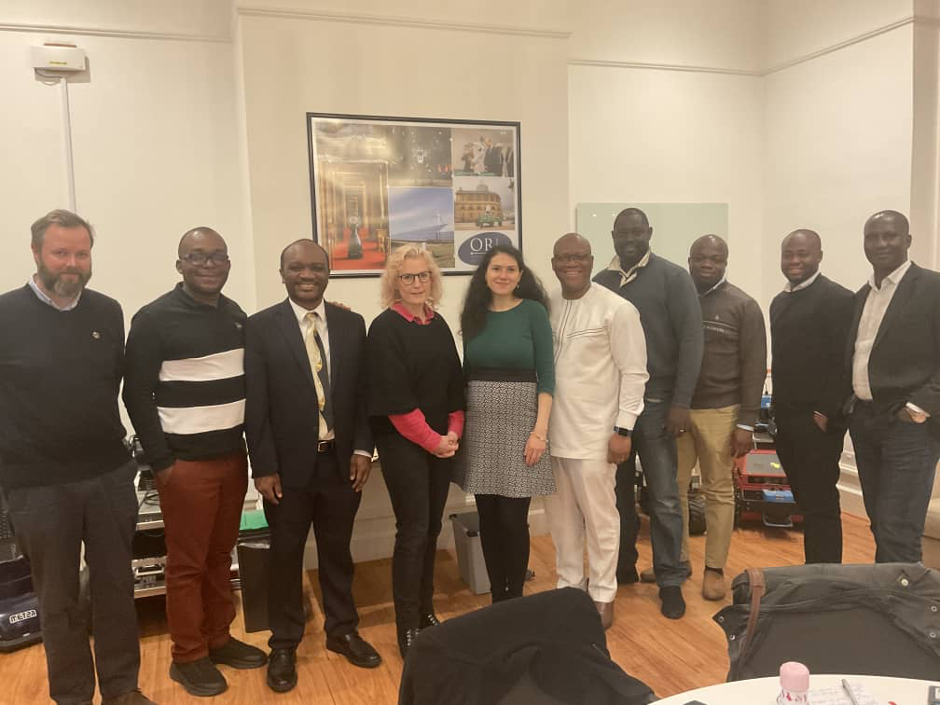KEEP NEWS
KEEP VISITS HIGHER EDUCATIONAL INSTITUTIONS AND INDUSTRY PARTNERS IN THE UNITED KINGDOM (UK)
Published: 05 Dec 2023

Meeting at the University of Cambridge with Dai Morgan
A team led by Prof. Jerry John Kponyo, Project Lead, KNUST Engineering Education Project (KEEP), visited the United Kingdom from October 13th to 19th 2023. They visited prestigious institutions like the Foreign Commonwealth and Development Office (FCDO), the Royal Academy of Engineering, the University of Oxford, and the University of Cambridge.
At a meeting with the FCDO, they engaged with Anthony Herman, who is in charge of Technology and Innovations, Michelle Willington, Programs Manager of Innovations, and Grace Cramer, responsible for Portfolios and Online programs. The discussion sparked considerable interest in Artificial Intelligence (AI) and Quantum Computing. It explored how Ghana could leverage the strategy initiated by the Former UK Foreign Secretary for its benefit in relation to Science, Technology, and Innovation.
Immediate actions include the FCDO to connect KNUST to higher education institutions exploring AI or Quantum technology.
At the Royal Academy of Engineering, they met with Catriona McArthur, Senior Manager, Africa Programmes at the Royal Academy of Engineering. Discussions revolved around preparing graduates for industry and collaborating on projects to enhance the quality of Postgraduate students sent to industry after graduation. Both entities will collaborate on joint grants and proposals to achieve this goal.

During the Oxford Robotics Institute visit, KNUST presented on the Responsible AI Lab (RAIL), Innovation Centre and KEEP. Significant interest arose, particularly in Responsible Artificial Intelligence, mirroring their University's Responsible Technology Centre. Both teams recognised the importance of involving Social Scientists in Artificial Intelligence, particularly concerning ethical considerations.
Much interest was also generated in the Centre for Doctoral Training in the UK, where PhD candidates can intern in Industry to help bridge the gap between Academia and Industry. KNUST will do well to adopt a similar strategy to aid in bridging the gap between academia and industry.
The University of Oxford informed KNUST about a twelve-month fellowship program, the Africa Oxford Collaboration, open for KNUST faculty members to apply. Additionally, Oxford committed to featuring KNUST's work in their journal.
At the University of Cambridge, discussions revolved around their Nuclear Energy programs, and they pledged to assist KNUST in establishing similar programs in the future. In the interim, they expressed readiness to be Guest Lecturers for Nuclear Energy seminars.

There were extensive discussions regarding the Biomedical Engineering program, where the Cambridge team expressed a strong desire to collaborate with KNUST. The team from Cambridge strongly encouraged KNUST students to consider applying for their Master's and PhD programs, which receive substantial support from the Mastercard Foundation. Additionally, they highlighted the prospect of mentorship programs at Cambridge tailored for young faculty members from KNUST and the young faculty members to take advantage of it.
